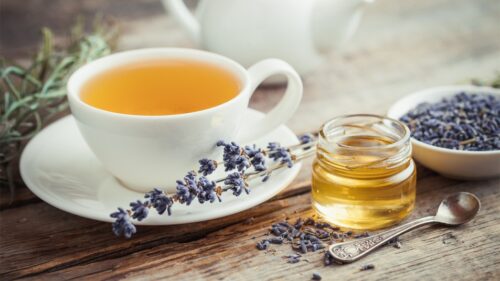Headaches can range from small annoyances to incapacitating migraines that keep you from accomplishing anything. Tension headaches induce a feeling of pressure and discomfort as if someone is crushing your skull. Sinus headaches often accompany cold and flu symptoms and prevent you from getting through the day.
If you suffer from headaches, you are not alone. Millions of Americans suffer from rebound migraines or chronic tension headaches, which can cause you to stop in your tracks.
Fortunately, drinking tea can help relieve the symptoms of headaches ranging from slight aches to full-fledged migraines. This list of the finest teas for headaches can assist in lowering the intensity of the pain and provide much-needed relief. Do you need tea to relieve a severe headache quickly? Check out our list of the best teas for headaches right here.
How can Tea Relieve Headaches?
Headache is defined as discomfort in the head and neck caused by a variety of health issues or environmental variables, such as loud noise, infections, stress, and even dehydration. There are several forms of headaches, and no one hasn’t had at least one or a few at some point in their lives. Some of these may be minor and easily treated, while others may be a symptom of a more serious medical issue. There are two types of headaches: main and secondary. Tension headaches, cluster headaches, and migraines are examples of primary headaches, whereas secondary headaches develop as a sign of another disease or condition, such as dehydration or the common cold.
Before you decide to treat your headache with tea, you need first to determine what type of headache you have. For example, a headache induced by dehydration can be relieved by rehydrating yourself with fluids such as tea. A cup of tea may also relieve headaches caused by a common cold or stress. Major headaches caused by serious underlying conditions, on the other hand, should not be addressed at home.
This content is provided solely for informational reasons. It is not meant to be used in place of medical advice, diagnosis, or treatment. Everyone is unique and may react differently to different herbs and teas. Never treat major medical illnesses with teas or herbs on your own. Before using home remedies, always seek professional medical advice.
10 Best Teas for Relieving Headaches
If you are certain that your headache is not the result of a more serious health headache, you can try lowering the discomfort with tea. Teas, for example, may aid in the treatment of tension headaches, headaches caused by dehydration, and headaches induced by stress or inflammation. Some herbal teas may help you relax, all caffeine-free teas will rehydrate you, and some are wonderful for reducing inflammation.
While there isn’t enough evidence to support all of the traditional uses of thousands of plants and herbs, you can expect to benefit from teas with calming and soothing properties like rose, jasmine, lavender, chamomile, and similar teas, as well as teas with analgesic activity like turmeric, cloves, ginger, or feverfew.
For example, one of the most popular flowers for scenting green tea is jasmine, which is known for its beautiful aroma and may help relieve stress. And tension headaches may be caused by stress.
#1. Green Tea
The Camellia sinensis plant is used to make green tea. All other forms of tea, including white, yellow, oolong, dark, and black tea, are made from the same plant. Because Camellia sinensis is naturally caffeinated, all genuine teas will contain caffeine. Caffeine is a stimulant that can be beneficial or detrimental depending on how and when it is consumed.
What’s really intriguing about caffeine is that it may help relieve pain, particularly headaches and migraines. Caffeine is an active element in many headache painkillers, but you can also receive it from a cup of tea. However, there is a component that is conflicting. It could possibly be the cause of your headache. Caffeine overdose has been linked to headaches in studies. Similarly, abruptly eliminating caffeine from your diet may result in a withdrawal headache.
#2. Ginger Tea
Ginger tea is one of the most adaptable tea for relieving headaches. Also, ginger is now one of the most ubiquitous ingredients in the kitchen and can be found in practically any shop. According to research, ginger tea may be as effective as normal drugs in relieving acute headaches.
What’s the best part? It may have fewer side effects than traditional medications. A cup of tea brewed with 2-3 grams of ginger root at the start of migraine headaches, and another if the migraine symptoms are still present 2 hours later, is an effective dose for reducing headache pain.
#3. Feverfew
Feverfew, also known as Tanacetum parthenium, isn’t everyone’s cup of tea, but it’s been used for centuries to alleviate headaches, migraines, and other types of discomfort. It is a member of the daisy botanical family, and while it is not commonly available, it has received more attention for its headache-relieving effects than many other plants. It may help with “classical migraine, cluster headaches, premenstrual, menstrual, and other headaches” and may aid with both prevention and treatment.
#4. Peppermint
For generations, both peppermint tea and peppermint oil have been used to relieve headaches. The use of peppermint water for headache relief was first mentioned in 1902. Even longer, peppermint oil has been used topically.
#5. Lavandin
Lavender is used the same way as peppermint, either as a tea created by steeping lavender flowers in hot water or topically as an essential oil. Inhaling lavender essential oil may also aid in the relief of acute headaches and migraines.
Related: SPIRITUAL RITUALS: Singles, Couples, and Full moon Spiritual Rituals
#6. Rhodiola Rosea
Rhodiola, a key adaptogenic herb, is used to cure not only headaches but also stress, anxiety, and depression. Adaptogenic plants are well-known for their capacity to naturally relieve stress and assist with a variety of stress-related illnesses.
#7. Chamomile
Chamomile, specifically German chamomile or Matricaria recutita, may also help with migraine relief. It has traditionally been utilized for its calming and soothing effects. Both chamomile tea produced from dried chamomile flowers and essential oil used topically may provide pain relief.
#8. Gingko Biloba
According to research, ginkgo may be a promising plant for avoiding headaches rather than treating them. In some trials, ginkgo either reduced the frequency of migraines or eliminated them entirely for the majority of subjects.
#9. Chrysanthemum
Although chrysanthemum tea is not as commonly available or popular in Western nations, it is filled with health advantages. For many years, chrysanthemum has been utilized in Traditional Chinese Medicine to treat headaches and other forms of pain alleviation. It also tastes fantastic, with fresh, slightly flowery, and sweet flavors.
#10. Rosemary
Rosemary, a popular aromatic culinary herb, may have numerous health advantages. It may be beneficial for nervous system diseases such as anxiety, but it may also have analgesic properties and improve memory. It is frequently used in traditional medicine to relieve headaches and migraines.
Risks and Considerations
Anecdotally, many assert that teas are well tolerated, with very little side effects. However, there may be a few adverse effects on the gastrointestinal system, such as nausea and vomiting.
The following are the specific risks of some teas.
- Ginger might cause mild side effects like abdominal pain and diarrhea, but these are uncommon.
- Chamomile may also cause nausea, dizziness, and allergic reactions, though these are uncommon.
- Feverfew has no major side effects but can induce digestive problems such as bloating.
- People should consult their doctor about any possible types or doses of herbs in teas that could affect them. Doctors can advise on what to take and what to avoid.
A Word About True Teas
True teas, including green tea and black tea, are known to provide a variety of health advantages; thus, it’s only natural that individuals reach for one of these delectable elixirs while trying to cure headache discomfort. Some people may experience a different reality as a result of the results. This is because real teas include caffeine, which can aggravate headache symptoms. These caffeinated teas might aggravate or even provoke migraine symptoms.
If you suffer from caffeine-induced headaches, stick to herbal teas, which are inherently caffeine-free. If you find that the teas relieve your headaches without exacerbating them, go ahead and drink the real headache. Because they are not oxidized, white tea and green tea have the lowest caffeine concentration of any real tea. Caffeine levels are higher in oolong, pu-erh, and black tea due to the manufacturing method.
Can Tea Give Headaches?
Caffeine consumption from tea on a regular basis may contribute to persistent headaches. According to some research, as little as 100 mg of caffeine per day may contribute to daily headache recurrence, but the exact amount required to induce a headache varies depending on an individual’s tolerance.
What Kind of Tea Is Good for Sinus Headaches?
Tea with peppermint. Peppermint tea has a tingling, refreshing flavor that may aid in the gentle opening of blocked sinuses.
What Happens If I Drink Green Tea Every Day?
Drinking green tea on a regular basis can help you lose weight and lower your risk of various diseases, including diabetes, heart disease, and cancer. Drinking three to five cups of green tea each day appears to provide the greatest health advantages.
What Pressure Point Helps Headaches?
LI-4, also known as Hegu, is a pressure point positioned between the base of your thumb and index finger. To ease pain and headaches, apply acupressure to this point.
In conclusion
Headaches can be very painful, especially if they do not respond to standard therapies. When you feel a migraine coming on, consider preparing one of these herbal teas for relief.
Taking a moment to pause and rest with these soothing teas may be enough to prevent a headache from arising. If you don’t drink tea on a regular basis, most of these herbs are also available as nutritional supplements. However, before beginning any new herbal supplements, consult with your doctor.



